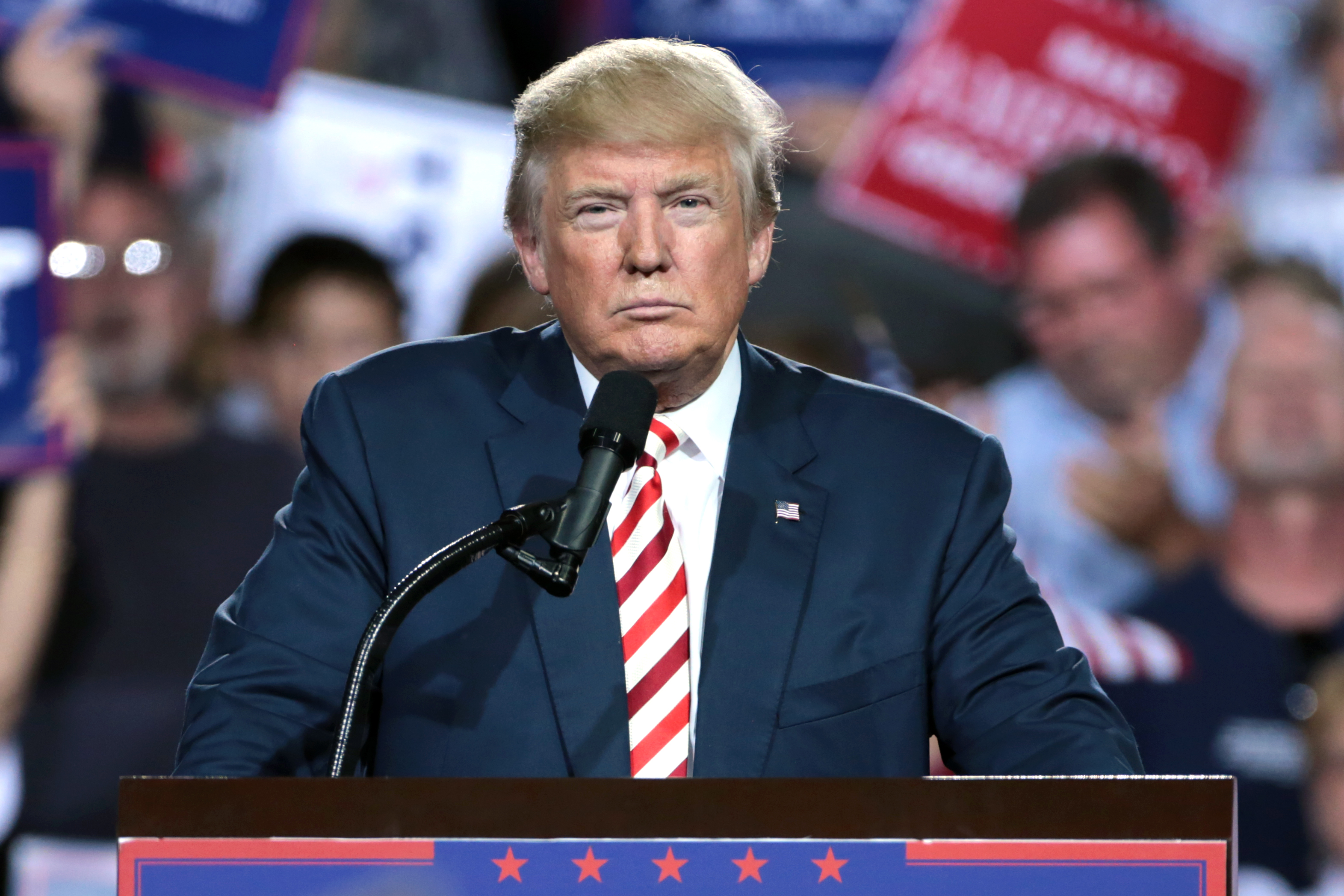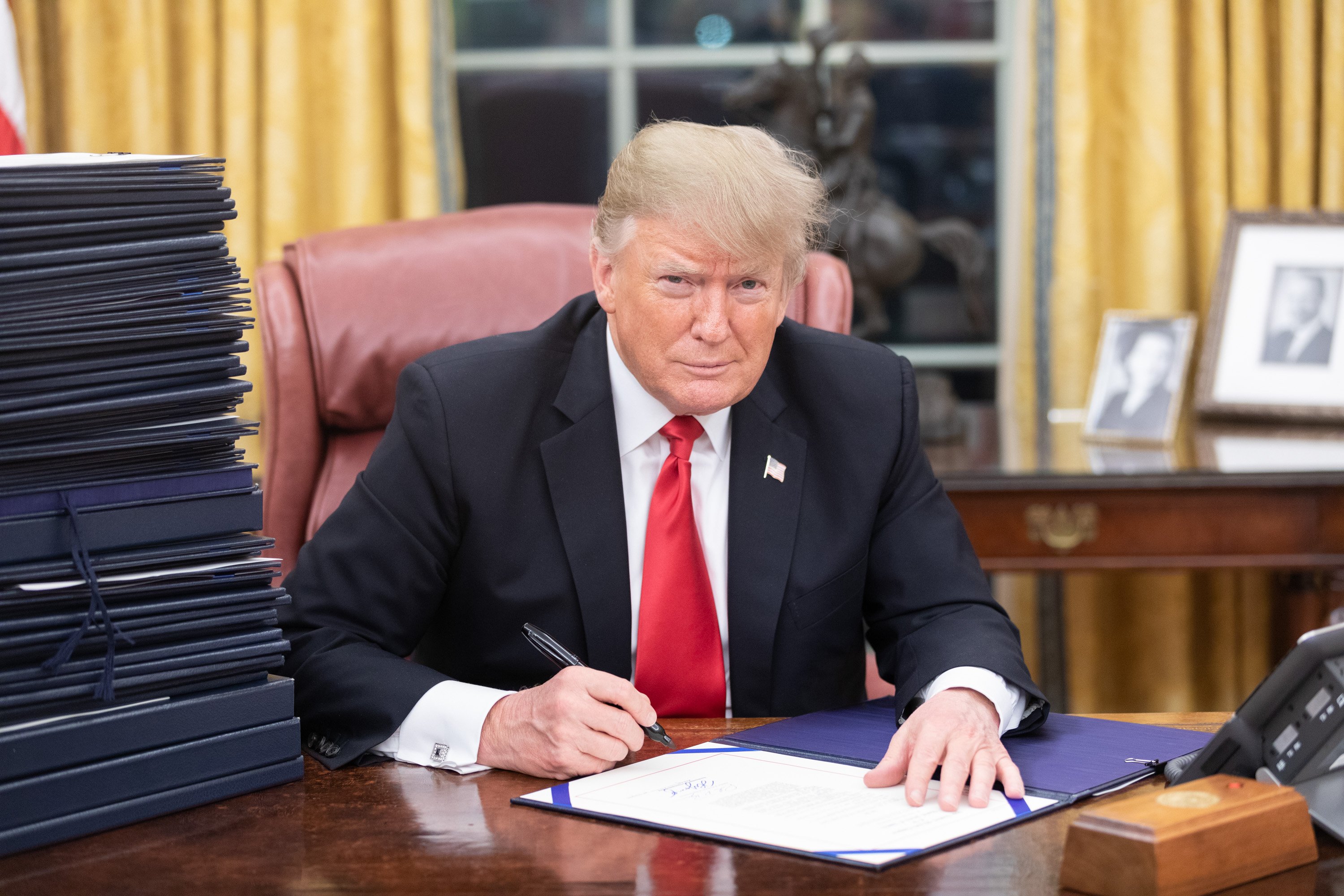A Victim of Crime and a Threat to Democracy

Published by The Lawfare Institute
in Cooperation With

“The Democrats have to stop their grossly irresponsible talk about Trump being an existential threat to democracy. He is not,” said former Attorney General Bill Barr, who only recently stopped talking about how Trump had “engaged in that kind of bullying about a process that is fundamental to our system and to our self-government [and] shouldn’t be anywhere near the Oval Office.”
“Today is not just some isolated incident,” declared the ever-malleable Sen. J.D. Vance (R-Ohio). “The central premise of the Biden campaign is that President Donald Trump is an authoritarian fascist who must be stopped at all costs. That rhetoric led directly to President Trump's attempted assassination.” Vance used to describe former President Donald Trump as a “unfit for our nation’s highest office” and as someone who might turn out to be “America’s Hitler” but he has since malleabled his way onto the former president’s ticket as his would-be vice president.
“I wish I could say I was surprised, but I've been worried about this for a very, very long time. You know, if he wins, democracy is not going to end. He's not a fascist. He represents a point of view that millions share. The rhetoric is way too hot,” clucked the omnipresent Sen. Lindsey Graham (R-S.C.). Graham knows something about hot rhetoric vis a vis Trump, having called him in Will Saletan’s summary, “‘hateful,’ a ‘kook,’ a ‘demagogue,’ and a ‘race-baiting, xenophobic, religious bigot’ who ‘represents the worst in America.’”
As someone who edits a publication that has repeatedly surfaced concerns about Trump's authoritarian tendencies, and as someone who has done so in my own writing, I want to say a few words in defense of this site’s—and my own—rhetoric about Trump as a threat to democracy.
No, I am not a Democratic leader and the criticism is not directed at either me personally or at Lawfare. But this site has been a locus of a great deal of writing about how Donald Trump is a threat to American democracy, and a great deal of writing exploring the nature of that threat. We began this work way back in 2015, with an essay by a Republican by the way, long before it was trendy or conventional wisdom. And we explored these themes in depth earlier than anyone else. It is not too much to say that we helped pioneer these themes. I have personally co-authored a book on the subject. While Lawfare authors do not all agree on the contours or magnitude or reality of the threat—far from it—it is certainly the case that the publication is, and that I personally am, as guilty as anyone of discussing Trump as a threat to American democracy and national security.
If that discussion led to the attempt on Trump’s life, we too have a lot to answer for.
I could spend the rest of this article highlighting the disingenuous pearl-clutching of the Grahams, Barrs, and Vances of the world. But that’s a mug’s game.
Instead, I want to take seriously and address on the merits the substance of their argument—which raises a grave charge that warrants a serious response. The fact, after all, that a great many of these critics are piously denouncing as creating an atmosphere conducive to violence rhetoric they themselves have deployed does not make their point wrong, though it does render them the most contemptible sort of hypocrites. An assassination attempt is a moment in which people who aspire to moral seriousness should take criticism as an opportunity for reflection. So let me use this occasion to reflect on my own, and Lawfare’s, role in the debate—a role of which I remain deeply proud.
In this regard, I have four points to make:
First, no single person in the United States has done more to cultivate a climate of political violence than has Donald J. Trump himself. As David Frum summarized in The Atlantic:
When a madman hammered nearly to death the husband of then–House Speaker Nancy Pelosi, Donald Trump jeered and mocked. One of Trump’s sons and other close Trump supporters avidly promoted false claims that Paul Pelosi had somehow brought the onslaught upon himself through a sexual misadventure.
After authorities apprehended a right-wing-extremist plot to abduct Michigan Gov. Gretchen Whitmer, Trump belittled the threat at a rally. He disparaged Whitmer as a political enemy. His supporters chanted “Lock her up.” Trump laughed and replied, “Lock them all up.”
Fascism feasts on violence. In the years since his own supporters attacked the Capitol to overturn the 2020 election—many of them threatening harm to Speaker Pelosi and Vice President Mike Pence—Trump has championed the invaders, would-be kidnappers, and would-be murderers as martyrs and hostages. He has vowed to pardon them if returned to office. His own staffers have testified to the glee with which Trump watched the mayhem on television.
Frum could have added any number of other elements to this list: Trump has menaced protesters at his rallies. He has ginned up mobs against journalists and those who resisted him inside of government. He has refused to denounce the Proud Boys and David Duke. He has dined with neo-Nazis. The list goes on and on and on. And while one can quibble with individual elements of it, I suppose, the larger pattern is unmistakable and undeniable.
In observing Trump’s central role in the normalization of political violence in the United States, my point is not to blame the victim for his own attempted assassination. It is, however, to insist that cultivating a culture of political violence necessarily involves unleashing forces and permissions that one cannot contain to one’s political enemies. A culture that at once tolerates the kind of violence Trump has encouraged and permits disaffected young men—for reasons political, ideational, or mental health-related—easy access to AR-15s is a culture that is going to have more political assassination attempts. We write a lot about political violence on Lawfare, and many others have sounded this warning as well. And while I never imagined that the politician on the business end of the AR-15 would be Trump himself, the fact that it has turned out to be so does not diminish the point.
Second, it is possible to be at the same time a threat to democracy and a victim of a horrible crime. The fact that Trump has been shot emphatically does not mean that his behavior does not threaten American democracy—just as the fact that Huey Long, the populist governor of Louisiana in the 1930s, was assassinated did not acquit him of being a corrupt authoritarian. That Trump is also a corrupt authoritarian surely cannot justify his attempted assassination or any political violence, but just as surely, the fact that a person attempted his assassination does not nullify the threat he poses. The two facts must be allowed to coexist.
Third, it thus follows that one can, indeed one must, unequivocally condemn the crime committed against President Trump—not to mention against the bystander killed in the shooting and against the people injured and terrorized—and still condemn Trump’s past behavior, his promises for the future, and his own long-term cultivation of political violence, all of which threaten the future of democratic health of the United States.
Finally, fourth, such frank criticism of Trump will inevitably cause at least some people to admire Trump less and to dislike him more. And in a polarized environment in which some people are unstable, evil, or for whatever other reason prone to take the law into their own hands, such conduct—which I call truth-telling—does inevitably have some capacity to inflame. For this reason, tone matters; it’s important always to be measured in rhetoric and not to needlessly up the temperature. I hope I, and we, have always done that.
But at the end of the day, I do not remotely repent the role we, and I personally, have played in discussing the issues Trump’s conduct has put before the American polity. I do not accept responsibility for contributing to a climate that led to the events of this past weekend, though I cannot deny we have raised the awareness level of the danger Trump presents and I acknowledge that some people do reckless horrible things with knowledge and awareness. More fundamentally, I have no intention of stopping, even as I insist that violence has no legitimate place in our political system and condemn both this act specifically and any physical attacks on politicians or anyone else for their political expression.
I do not believe that leading Democrats, the press, or other analysts should stop either. The actions of a would-be assassin cannot be allowed to obviate the reality of Trump.


-(1).jpg?sfvrsn=b91ff6a6_7)


